Nationwide Veterinary Analytics released the second of three white papers with important canine cancer risk data in March 2022. Here's a video talking through the headlines and showing the main charts and much of the same information in text below too. They focused on the 25 top / most popular dog breeds, so many of us don't get information for our own dog breeds. It's still really interesting, though. Let's take a look at what we've learned.
More...
^^ Sorry the text in the video is a little pixel-y. I didn't want the file to be huge, so I saved it as a lower quality. Lesson learned, I guess.
March 2022 – Cancer Risk Data
In March 2022, Nationwide® Veterinary Analytics released a white paper with data about the relative risk for pet insurance claims for cancer broken out by:
- Breed
- Dog Breed + affected body system
- Dog Breed + age of initial claim
You can download and read the announcement, white paper, and details on the methodology and math.
Canine Cancer Relative Risk Data
Before writing this white paper, Nationwide® Veterinary Analytics did a single variable analysis of pet insurance claims:
- 1.61 million dogs
- 6 years between 2015 and 2021
- Purebred dogs account for approximately 60% of dogs studied.
Then, they further looked at additional details of the top 25 breeds represented in that data set. Almost 70% of all Nationwide-insured purebred dogs are included in the top 25 breeds [sample size of at least 10,000 dogs across the sample period].
- Labrador Retriever
- Golden Retriever
- French Bulldog
- German Shepherd
- Yorkshire Terrier
- Shih Tzu
- English Bulldog
- Boxer
- Chihuahua
- American Pit Bull Terrier
- Dachshund / Miniature
- Maltese
- Siberian Husky
- Schnauzer / Miniature
- Pug
- Great Dane
- Pomeranian
- Beagle
- Boston Terrier
- Rottweiler
- Cavalier King Charles Spaniel
- Australian Shepherd
- Pembroke Welsh Corgi
- Poodle / Toy
- Doberman Pinscher
What relative risk means
Basically, relative risk provides a comparison to the cancer claims rates for the average of all dogs. If all dogs have a relative risk of 1.0 or 100%, then anything:
- Higher than 1.0 or 100% represents a higher relative risk
- Lower than 1.0 or 100% represents a lower relative risk
Relative Risk Cautions / Limitations
To help us understand what the white paper is and is not saying, Nationwide® Veterinary Analytics explains … “These relative risk values speak to the likelihood of dogs of that breed having submitted at least one claim for cancer. They do not infer overall health of the breed, the severity of a cancer condition or the effect of these cancer claims on the longevity of a breed.”
The big headlines - Canine Cancer Risk Data
“As a group, purebred dogs account for approximately 60% of the dogs studied, with an overall cancer claims rate almost twice (189% or 1.9x) that of non-purebred dogs.”
3 Breeds with Highest Relative Risk
- Boxers - 261% relative risk
- Beagles – 198% relative risk
- Golden Retrievers – 195% relative risk
However, since the overall relative risk for purebred dogs is 189%, that data for Boxers stands out more than the others at the top.
3 Breeds with Lowest Relative Risk
- French Bulldogs – 63% relative risk
- Chihuahuas – 52% relative risk
- Pomeranians – 45% relative risk
Boxers Relative Risks by Body System
- Skin tumors - 420% relative risk
- Cardiac – 462% relative risk
- Lymphatic – 357% relative risk
- Neurological – 492% relative risk
Beagles Relative Risks by Body System
- Urinary – 632% relative risk -- Apparently, Beagles commonly get bladder cancer.
- Endocrine – 264% relative risk
- Liver – 333% relative risk
- Mammary – 234% relative risk
- Spleen – 242% relative risk
Goldens Relative Risks by Body System
This spleen and cardiac data (common spots where hemangiosarcoma happens) are not surprising at all in Goldens.
- Spleen – 320% relative risk
- Bone – 235% relative risk
- Cardiac – 420% relative risk
- Liver – 280% relative risk
- Lymphatic – 265% relative risk
Rottweiler news! Ooph! Our Rottie friends have a 1,009% relative risk for bone cancer. That means they are 10 times more likely to get bone cancer compared to the average dog.
But, their relative risk for cancers over all is 81% because of lower risks for cancer “across almost all other body systems.”
Youngest breeds for Age of First claim
- Boxers (7.6 years)
- Rottweilers (7.8 years)
- Dobermans (7.4) years
Driven by several factors, especially “body systems most commonly affected by cancer in these breeds”
This big chart kind of sums everything up.
Notice that the earliest cancer claims happen as young as 6.2 years old in Great Danes and 6.8 years in French Bulldogs. That means we need to really watch our dogs and alert our veterinary teams to any changes from about age 6 or 7 forward.
Post a comment if there is anything in the data that surprised you.



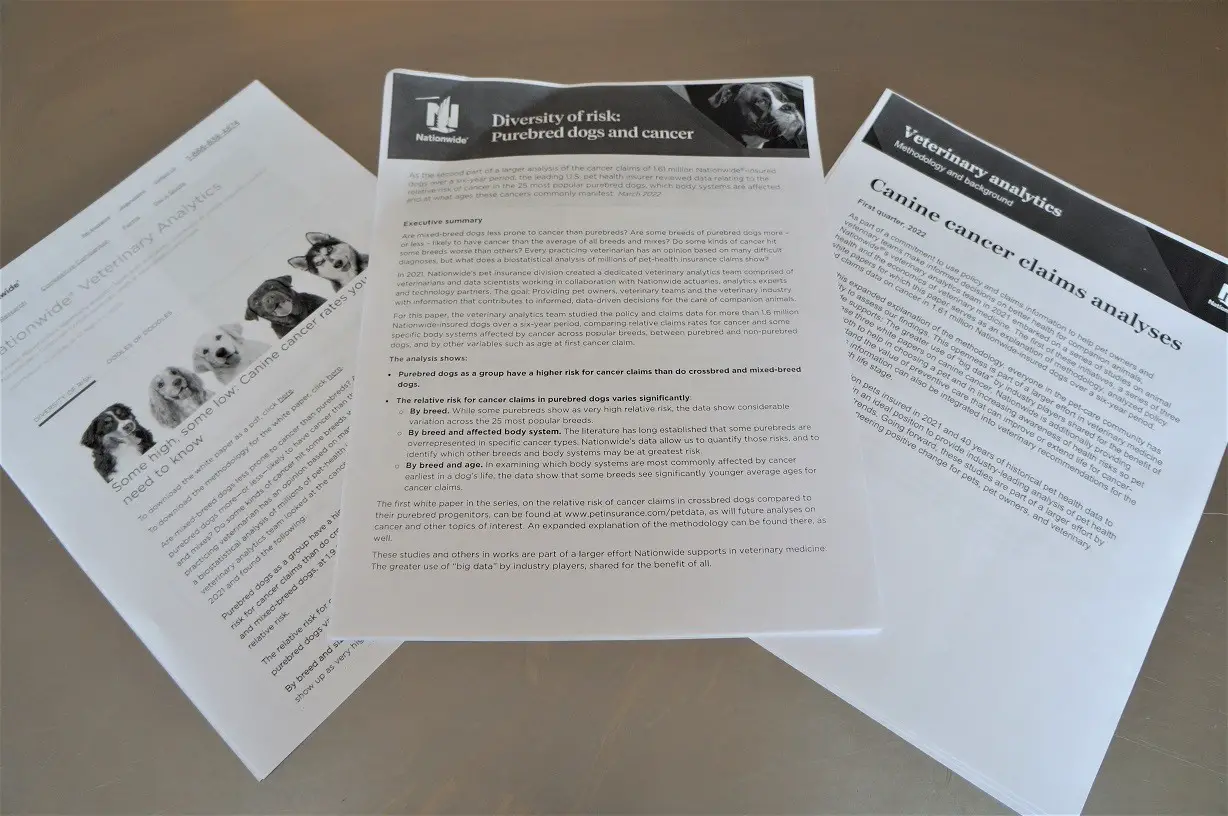
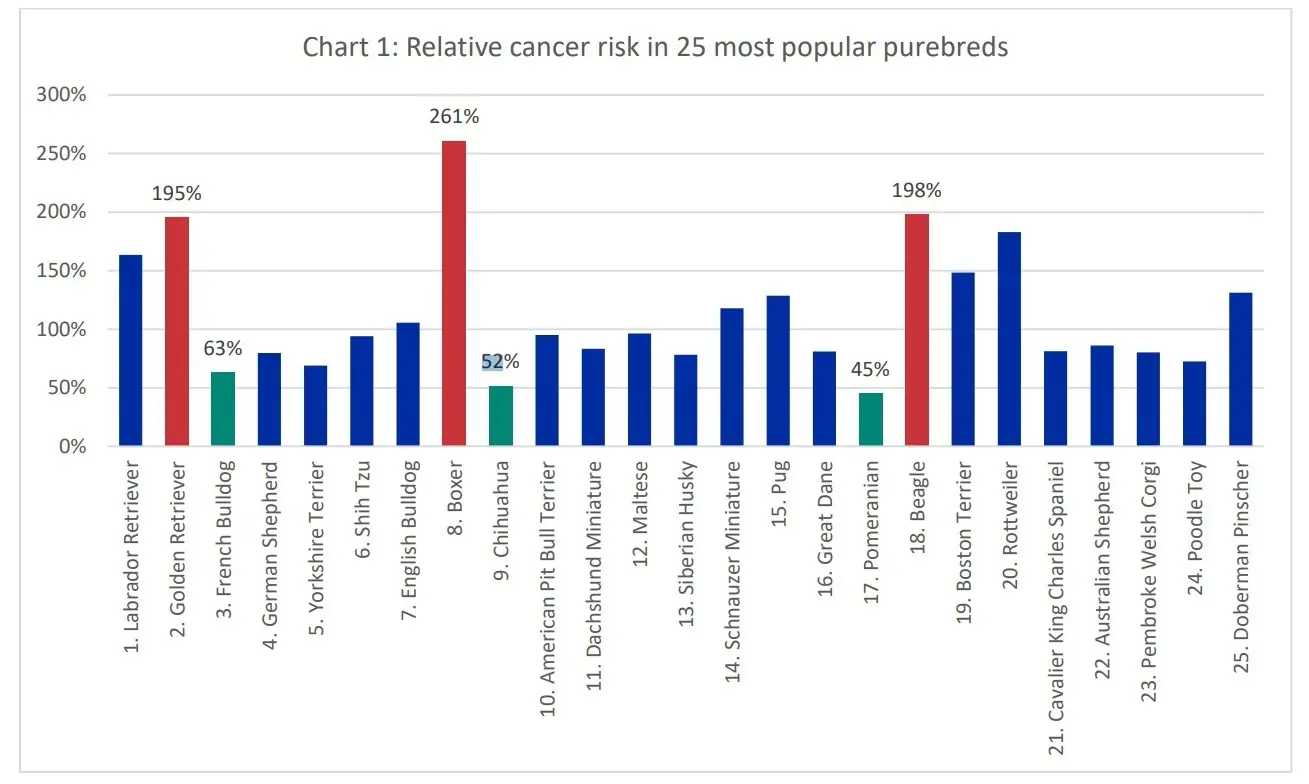
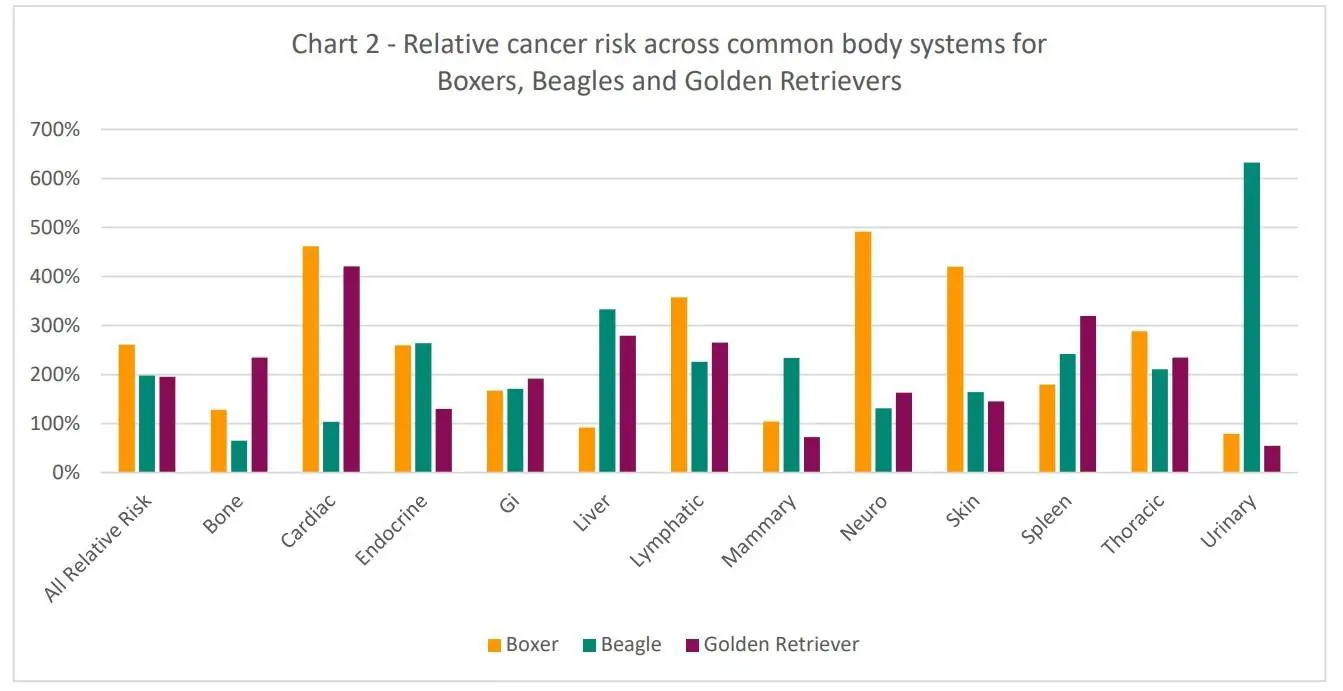
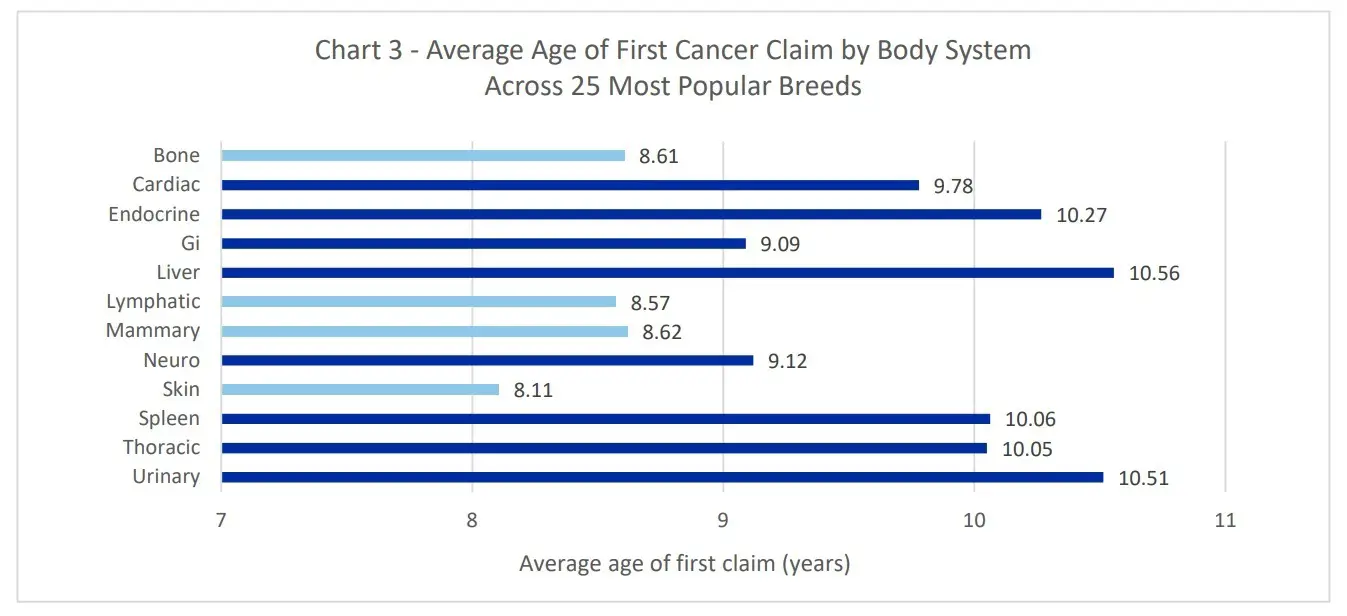
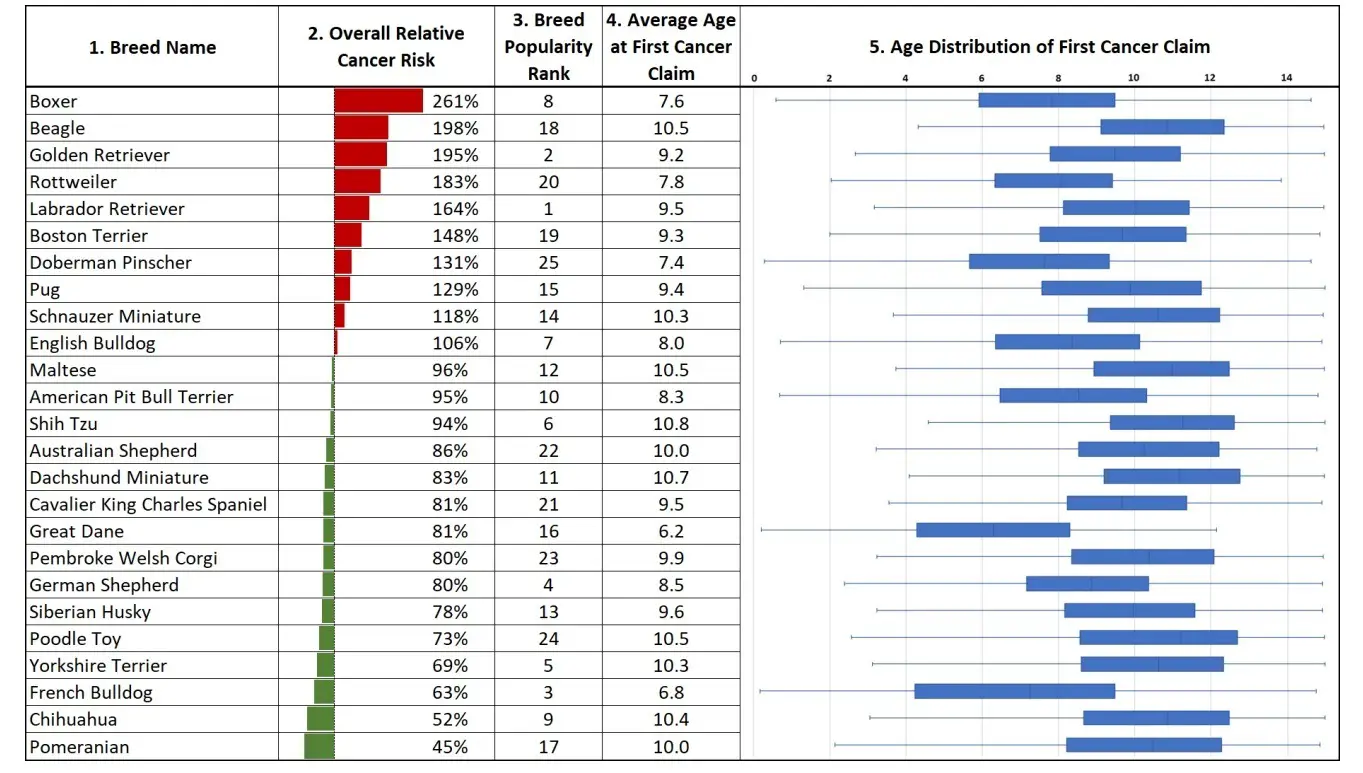

0 comments